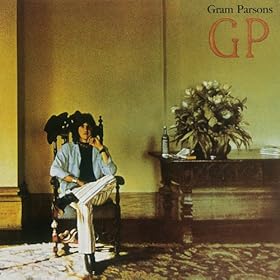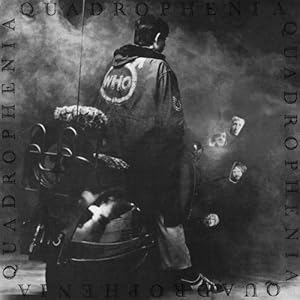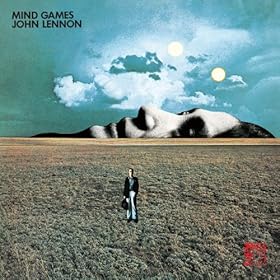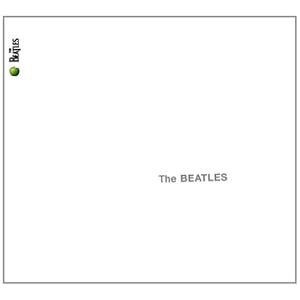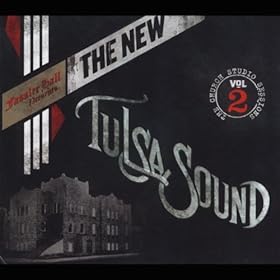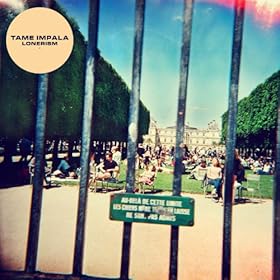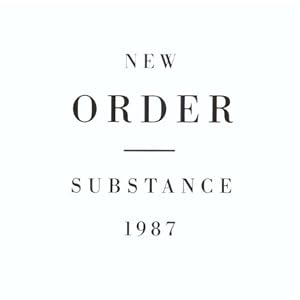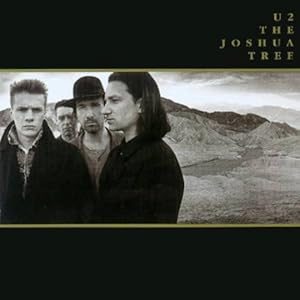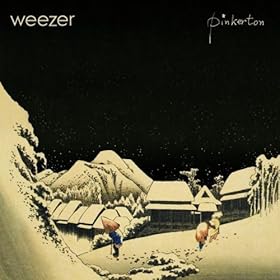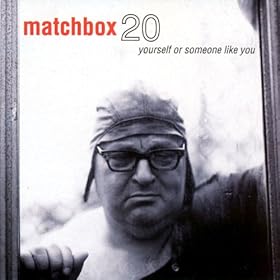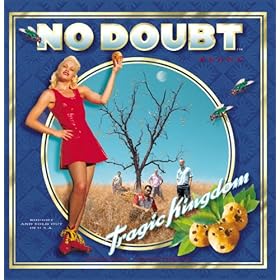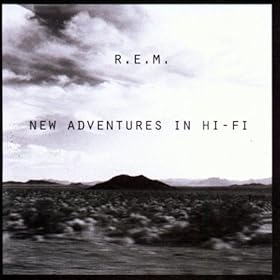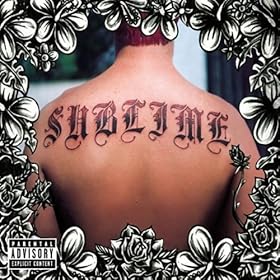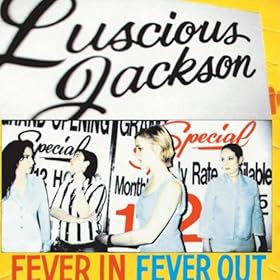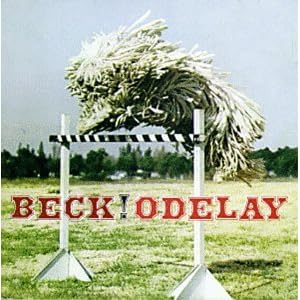![]() FRIDAY FLASHBACK:
FRIDAY FLASHBACK: Every Friday we set the Hot Tub Time Machine to one year in rock history and give you the best (and worst) music from that year, all day long beginning at 1:00 AM EST and running for 24 hours on Jivewired Radio powered by Live365.
This week: 1973
Next week: 1967
To listen, just press play on the radio widget to the right or use this link to open in a new window that will allow you to listen when you navigate away from this page:
Launch Jivewired RadioAlbum Art From 1973, Click Cover To Download: ![]()
![]()
![]()
![]()
![]()
![]()
![]()
![]()
![]()
![]()
![]()
![]() 1973 Album I Wish I Owned: A Passion Play
1973 Album I Wish I Owned: A Passion Play by Jethro Tull
1973 Nominee For Worst Album Cover Ever:There Goes Rhymin' Simon by Paul Simon
1973 Most Underrated Song:Thirteen by Big Star
1973 Most Overrated Song:Piano Man by Billy Joel
1973 Most Memorable Song:You're So Vain by Carly Simon
1973 Most Significant Song: A Song For You by Gram Parsons
1973 Most Forgotten Song:Ooh La La by Faces
1973 Fan's Choice For Most Popular Song:Free Bird by Lynyrd Skynyrd
1973 Album Of The Year:Dark Side Of The Moon by Pink Floyd
1973 Most Likely To Start A Party Song:Dixie Chicken by Little Feat
1973 Please Don't Play Anymore Song:Seasons In The Sun by Terry Jacks
1973 Song That I Like More Than I Actually Should:Diamond Girl by Seals & Crofts
1973 Album I Liked More Than I Thought I Would:Honky Tonk Heroes by Waylon Jennings
1973 Song That I Tend to Leave on Repeat:Rosalita (Come Out Tonight) by Bruce Springsteen & The E-Street Band
Guilty Pleasure of 1973:Bad, Bad Leroy Brown by Jim Croce
Breakout Artists of 1973: Styx, Aerosmith, Bruce Springsteen, Bachman-Turner Overdrive, Jackson Browne, The Eagles
Overplayed In 1973: Paul McCartney
Not Played Enough In 1973: George Harrison
Greatest Chart Re-Entry from 1973:Rock Around The Clock by Bill Haley & His Comets (1954)
Best Cover Song Of 1973:Boogie Woogie Bugle Boy by Bette Midler
Worst Cover Song of 1973:A Hard Rain's A-Gonna Fall by Bryan Ferry
An unheralded great album from 1973:The World Is A Ghetto by War
An unheralded great single from 1973:Sail On Sailor by The Beach Boys,
Celluloid Heroes by The Kinks
Best Soundtrack of 1973:American Graffiti
Jivewired's Top FiveSix Seven Songs Of The Year
01.
Free Bird by Lynyrd Skynyrd
02.
The Rain Song by Led Zeppelin
03.
Rosalita (Come Out Tonight) by Bruce Springsteen & The E-Street Band
04.
Money by Pink Floyd
05.
Give Me Love (Give Me Peace On Earth) by George Harrison
06.
5:15 by The Who
07.
Ooh La La by Faces
Jivewired's Top Five Albums Of The Year
01.
Dark Side Of The Moon by Pink Floyd
02.
Houses Of The Holy by Led Zeppelin
03.
Quadrophenia by The Who
04.
Goodbye Yellow Brick Road by Elton John
05.
The Wild, The Innocent & The E-Street Shuffle by Bruce Springsteen & The E-Street Band
![]()
This week we take you on a one day odyssey into one of two benchmark
years in the first half of the polyester decade.
Dark Side Of The Moon.
Houses Of The Holy. A coming out party, musically speaking, for Elton
John. Debut albums from Bruce Springsteen (
Greetings From Asbury Park),
and Aerosmith (Eponymous Title) -- yes they're that old. Way
underrated albums by the Rolling Stones (
Goat's Head Soup) and Neil
Young (
Time Fades Away). Toss in some Marvin Gaye, War, Aretha
Franklin, Lynyrd Skynyrd and Paul McCartney's
Band On The Run and it all
adds up to a pretty spectacular year in music.
Also, let us take a moment to pay homage to the father of alt-country.
1973 gave us alt-country/rock releases by Gram Parsons, leader of the movement,
as well as songs by Little Feat, The Marshall Tucker Band, The Eagles, Jackson Browne
and even the Rolling Stones, all inspired by the late Mr. Parsons. Tom Waits (yes I said Tom Waits) wrote
Ol' 55 which is the closest that man ever came to alt-country, a song which was eventually taken a step further toward the movement by The Eagles in '74. If
you've never heard
Silver Train, a blues and alt-country hybrid
masterpiece by The Rolling Stones, you should listen to the wonderful
piano/slide guitar interplay that sounds like it was produced and
arranged by Parsons himself.
1973 also proved to be the birth of Outlaw Country, a roots/country sub-genre led and inspired by Waylon Jennings. Jennings' 1973 album
Honky Tonk Heroes is considered an important piece in the history of country music. Billy Joe Shaver, who is highly regarded for helping push forward outlaw country, opined that by creating an amalgam of roots rock and blues country, Jennings became the sub-genre's first forefather. Ken Burns, in Robert Dimery's book
1001 Albums You Must Hear Before You Die, says that
Honky Tonk Heroes is
"one of country music's landmark albums", and points out Jennings' rock and roll roots as bass player for Buddy Holly. Indeed, Waylon Jennings painted a near-defiant stance that merged rock's attitude and cocksurety with country and western's roots traditions to create the hardest country tunes imaginable.
1973 also provided our initial witness to the exponential growth of FM radio
and it's burgeoning influence on popular music. FM radio represented
the counterculture and gave it's audience the experience of deeper album
cuts and longer, original versions of songs. AM radio was losing it's
stronghold as the favored outlet due to its inherent lack of variety and it's aging demographic --
combining commercialized, repetitive playlists with high-strung,
obnoxious deejays, and long-winded news/weather/traffic breaks between songs. It was a 1950's attitude forced upon a generation that had long-since disassociated itself from it's formative years.
![]()
FM radio also cast the album into mainstream airplay as the intellectual
counterpoint to AM radio's obsession with the 45 rpm single (and what
FM radio station didn't feature an album sides weekend at least twice a
year?). Pop music enjoyed somewhat of a resurgence as well, returning
triumphantly to the old-fashioned values that had sustained it's
creative boon of the 1960s. A big part of the reason was the popularity of George Lucas' epic film
American Graffiti and it's soundtrack that included some of the most popular songs from 1957-1962.
Don't believe me? I offer you
Seasons In
The Sun by Terry Jacks as proof, a song that was formulaic to a fault, leaning on the tragi-pop sensibilities that proved to be hits for artists like J. Frank Wilson (
Last Kiss) and The Shangri-Las
(Leader Of The Pack) in the previous decade. Regretfully, if AM radio in turn
decided they liked a deeper album cut that proved popular on FM Radio, the record labels
acquiesced by taking perfectly beautiful songs and chopping them down to
somewhere around three to four minutes in length. On this point, I
offer the AM radio version of
Free Bird by Lynyrd Skynyrd, which is
actually as disgusting as it is disheartening.
Perhaps it was savvy marketing strategy, a trend toward conservatism
after a turbulent era in society and more specifically, in music, or
just plain selling out, but the restoration of traditional forms of
popular music (rock, blues, country) helped spread new music and thus
turn rock music into one of consumerism's most successful phenomena. We even witnessed the return of the thought-to-be-extinct one-hit wonder, a diminished music commodity due to gains in popularity of deeper album cuts thanks to AOR and MOR radio.
Through everything however, 1973 represented a transitional midpoint in the history of rock and roll. Think about what was considered popular seven years previously in 1966, and what was popular seven years going forward in 1980. Basically we made the jump from
Rubber Soul and
Pet Sounds to
London Calling and
The Wall , with
Houses Of The Holy and
Dark Side Of The Moon identifying the true midpoint in that time span. As a music culture we spent that span going into and past popular music anomalies such as psychedelia, one-hit wonders, disco, prog-rock, punk and post-punk and right into new wave, electronica and the birth of rap and hip hop. Similarly, we could split the differences in music from 1958 to 1988 for an even more dramatic example of music evolution, with some dilution of emphasis, however, because at that point you are speaking in generational terms.
![]()
Do you see anything odd about the following top twenty list?
Top 20 Songs For 1973(rankings are based on initial and lasting popularity and on acclaim
received from deejays on both AM & FM bands as well as critics and
musicians)
01.
Free Bird - Lynyrd Skynyrd
02.
Let's Get It On - Marvin Gaye
03.
Midnight Train To Georgia - Gladys Knight & The Pips
04.
Dream On - Aerosmith
05.
Living For The City - Stevie Wonder
06.
Money - Pink Floyd
07.
Piano Man - Billy Joel
08.
Killing Me Softly With His Song - Roberta Flack
09.
Goodbye Yellow Brick Road - Elton John
10.
That Lady - Isley Brothers
11.
Angie - The Rolling Stones
12.
The Joker - Steve Miller Band
13.
Radar Love - Golden Earring
14.
Drift Away - Dobie Gray
15.
Knockin' On Heaven's Door - Bob Dylan
16.
I Shot The Sheriff - Bob Marley & The Wailers
17.
Ramblin' Man - The Allman Brothers Band
18.
We're An American Band - Grand Funk
19.
Band On The Run - Paul McCartney & Wings
20.
When Will I See You Again? - The Three Degrees
In 1967, KSAN-FM deejay Tom Donahue lambasted AM radio's top forty format
in an article for Rolling Stone Magazine entitled
"AM Radio Is Dead and
Its Rotting Corpse Is Stinking Up the Airwaves." By 1973, Donahue was
perceived as somewhat of a prophet. Blame American Bandstand for
creating so many one hit wonders, and credit Soul Train for the
crossover of funk and R&B back into the mainstream as the Motown
Records hit machine began it's run of diminishing returns. In 1973, the
differences in format between FM and AM proved that radio represented partisan ideologies as diverse as America's two-party political system.
But the term crossover, at least in 1973, no longer applied to music genres and sub-genres. Crossing over meant having hits on both AM and FM simultaneously. Arguably the king of that type of crossover in the mid-1970s was Elton John, who found success with his more mainstream work on AM radio and with his more progressive stuff on FM.
In many ways, 1973 represented the Dark Ages in rock music history, as many
artists began to explore their more progressive sides. Even songs like
Living For The City by Stevie Wonder and
Funeral For A Friend/Love
Lies Bleeding by Elton John veered heavily toward progressive
experimentation. But rather than attempt to destroy the movement,
established radio absorbed it, particularly on the FM side, allowing
rare tracks and obscure artists into the mainstream. This
diversification led to radio's renaissance. Just ten years earlier top
20 radio was dominated by The Beatles, The Beach Boys, and Bob Dylan.
In 1973, and for the first time in modern rock history, twenty separate and distinct musical acts comprised year-end top 20
radio.
Gone Too Soon:- Ron Pigpen McKernan of The Grateful Dead, aged 27 (March 8)
- Clarence White of The Byrds, aged 29 (July 15)
- Gram Parsons, aged 26 (September 19)
- Jim Croce, aged 30 (September 20)
- Gene Krupa, aged 64 (October 16)
- Zake Zettner of The Stooges, aged 25 (November 10)
- Bobby Darin, aged 37 (December 20)
Time Is Money, Money Is Time:![]() Dark Side Of The Moon
Dark Side Of The Moon was the eighth studio album by English progressive rock band Pink Floyd, released on March 1, 1973 to almost immediate success. It was Number One on Billboard's Top LP & Tapes List for only one week, but subsequently remained in the Top 200 charts for 741 weeks from 1973 to 1988.
741 weeks. Fifteen years.
With an estimated 50 million copies sold, it is Pink Floyd's most commercially successful album and one of the best-selling albums worldwide. It has twice been remastered and re-released, and has been covered in its entirety by several other acts, the Flaming Lips most recently.
The LP spawned two Top 40 singles,
Time&
Money and was engineered by Alan Parsons, who spring-boarded that success into a nice musical career as a performer.
It even carries with it an urban legend of sorts.
Dark Side of the Rainbow and
Dark Side of Oz are two names commonly used
in reference to rumors circulated
that
Dark Side of the Moon was written as a soundtrack for the 1939 film
The Wizard of Oz.
Fat chance? Or somewhat true?
Observers playing the film and the album simultaneously have reported apparent synchronicities, such as Dorothy beginning to jog at the lyric "
no one told you when to run" during
Time, and Dorothy balancing on a tight-rope fence during the line
"balanced on the biggest wave" in
Breathe.
David Gilmour and Nick Mason have both denied a connection between the
two works, and Roger Waters has described the rumors as
"amusing".
That being said, there are thousands of annual showings of the movie simulcast against
Dark Side of The Moon. The definitive answer may lie with Alan Parsons, who has stated that the film was not mentioned during production of the album.
Moves Like Jagger? Not So Much![]()
The song is a mystery no longer!
After 40 years of guessing and wondering, Carly Simon
has revealed who her iconic
You're So Vain song is written about.
Ah well, it's out there, allegedly. The song, which was rumored for years to be about one of her ex-boyfriends
, was actually written about gay record label boss David Geffen according to a UK tabloid.
So, while for years the speculation was that song was intended to be
an angry-bitter break-up song, now the lyrics take on a whole new meaning. It may be that Carly is signing about her resentment towards Geffen because he allegedly put more effort into promoting rival star Joni
Mitchell.
Stop the presses.
No really.
It's just more speculation with no textual reference or concrete evidence.
In truth, Carly Simon had never met David Geffen before writing
Your So Vain. Simon herself stated recently,
"What a riot! Nothing to do with David!"
So who is it about then? The person Simon is singing about in this song remains a mystery, as she
has never made it clear who she wrote it about; rumors include Warren
Beatty, Kris Kristofferson, Cat Stevens, and Mick Jagger, all of whom
she had affairs with. Carly has been elusive and changed her story a bit
when asked the inevitable question about the song. In 1974, she told
Modern Hi-Fi and Music:
"That
song is about a lot of people. I mean I can think of a lot of people.
The actual examples that I've used in the song are from my imagination,
but the stimulus is directly from a couple of different sources. It's
not just about one particular person."
I vote she is singing about me.
I have a more pressing question: What the hell does
"clouds in my coffee" mean?
It was a reflection of the sky in a cup of coffee while Simon was traveling, pointed out to her by a friend sitting next to her on the airplane. So she jotted down the phrase and used in the song. Ho hum.
To be honest, the best thing about the song is how everybody stops singing at the following line because nobody knows the exact phrasing:
"You had one eye in the mirror as you watched yourself gavotte."
You can now stop, stop singing. That's why we do.
Go Forth, For You Are The Future Of Rock & Roll.........![]()
The following bands trace their formations back to 1973: AC/DC, Bad Company, Cheap Trick, Pablo Cruise, Heart, Journey, KISS, Los Lobos, Quiet Riot and The Tubes. On the flip side, 1973 also gave us KC & The Sunshine Band.
Playlist Adds For Friday Flashback 1973****Release dates are to the best of my knowledge and in most cases
represent the release date of the album from which the single derived.
In cases of singles and/or B-Side releases only, we use the official
U.S. single release date for the A-Side.****October 1972 (and earlier):
001.
Hello It's Me by Todd Rundgren (1971)
002.
Thirteen by Big Star
003.
One Tin Soldier by Coven
004.
Also Sprach Zarathrusta by Deodato
005.
Whammer Jammer [Live] by The J. Geils Band
006.
Papa Was A Rolling Stone by The Temptations
007.
Midnight Cruiser by Steely Dan
008.
Brooklyn (Owes The Charmer Under Me) by Steely Dan
009.
Reelin' In The Years by Steely Dan
010.
Dirty Work by Steely Dan
011.
Will It Go Round In Circles by Billy Preston
012.
You Are The Sunshine Of My Life by Steely Dan
013.
Stuck In The Middle With You by Stealer's Wheel
November 1972:
014.
The Night The Lights Went Out In Georgia by Vicki Lawrence
015.
Satellite Of Love by Lou Reed
016.
Me & Mrs. Jones by Billy Paul
017.
Frankenstein by The Edgar Winter Group
018.
The Cisco Kid by War
019.
The World Is A Ghetto by War
020.
Celluloid Heroes by The Kinks
December 1972:
021.
Boogie Woogie Bugle Boy by Bette Midler
022.
You're So Vain by Carly Simon
023.
Dueling Banjos by Eric Weissberg & Steve Mandell
024.
Love Train by The O'Jays
January 1973:
025.
She by Gram Parsons
026.
A Song For You by Gram Parsons
027.
The Free Electric Band by Albert Hammond
028.
Blinded By The Light by Bruce Springsteen & The E-Street Band
029.
Growin' Up by Bruce Springsteen & The E-Street Band
030.
For You by Bruce Springsteen & The E-Street Band
031.
Spirit In The Night by Bruce Springsteen & The E-Street Band
032.
Dream On by Aerosmith
033.
Dancing In The Moonlight by King Harvest
034.
Daniel by Elton John
035.
Skyline Pigeon by Elton John
036.
Sail On, Sailor by The Beach Boys
February 1973:
037.
Drift Away by Dobie Gray
038.
Dixie Chicken by Little Feat
039.
Until You Come Back To Me (That's What I'm Gonna Do) by Aretha Franklin
040.
Search & Destroy by The Stooges
041.
No More Mr. Nice Guy by Alice Cooper
042.
Right Place Wrong Time by Dr. John
March 1973:
043.
If I'm In Luck I Might Get Picked Up by Betty Davis
044.
Ooh Yeah by Betty Davis
045.
Time by Pink Floyd
046.
Money by Pink Floyd
047.
Us & Them by Pink Floyd
048.
Neither One Of Us by Gladys Knight & The Pips
049.
Long Train Runnin' by The Doobie Brothers
050.
The Song Remains The Same by Led Zeppelin
051.
Over The Hills & Far Away by Led Zeppelin
052.
The Crunge by Led Zeppelin
053.
Dancing Days by Led Zeppelin
054.
D'Yer Mak'er by Led Zeppelin
055.
The Rain Song by Led Zeppelin
056.
Give It To Me by The J. Geils Band
057.
Ol' 55 by Tom Waits
058.
Ooh La La by Faces
April 1973:
059.
Diamond Girl by Seals & Crofts
060.
Here I Am (Come & Take Me) by Al Green
061.
Natural High by Bloodstone
062.
Can't You See by The Marshall Tucker Band
063.
I'll Be Around by The Spinners
064.
Could It Be I'm Falling In Love by The Spinners
065.
Tequila Sunrise by The Eagles
066.
Desperado by The Eagles
067.
Doolin' Dalton by The Eagles
068.
Warm Love by Van Morrison
069.
My Love by Paul McCartney & Wings
May 1973:
070.
Across 110th Street by Bobby Womack
071.
Loves Me Like A Rock by Paul Simon
072.
Give Me Love (Give Me Peace On Earth) by George Harrison
073.
The Fever by Bruce Springsteen & The E-Street Band
June 1973:
074.
Rock On by David Essex
075.
Live & Let Die by Paul McCartney & Wings
076.
Rocky Mountain Way by Joe Walsh
077.
Just You 'N Me by Chicago
078.
Feelin' Stronger Every Day by Chicago
079.
In Time by Sly & The Family Stone
July 1973:
080.
Bad, Bad Leroy Brown by Jim Croce
081.
Roller Derby Queen by Jim Croce
082.
The Cover Of The Rolling Stone by Dr. Hook & The Medicine Show
083.
Radar Love by Golden Earring
084.
Lady by Styx
085.
Honk Tonk Heroes by Waylon Jennings
086.
Knockin' On Heaven's Door by Bob Dylan
087.
We're An American Band by Grand Funk Railroad
088.
Who's That Lady by The Isley Brothers
089.
China Grove by The Doobie Brothers
090.
Waitin' For The Bus by ZZ Top
091.
Jesus Just Left Chicago by ZZ Top
092.
La Grange by ZZ Top
093.
Looking For A Kiss by The New York Dolls
August 1973:
094.
The Most Beautiful Girl by Charlie Rich
095.
Midnight Train To Georgia by Gladys Knight & The Pips
096.
Ramblin' Man by The Allman Brothers Band
097.
Jessica by The Allman Brothers Band
098.
Brother Louie by Stories
099.
Keep On Truckin' by Eddie Kendricks
100.
Higher Ground by Stevie Wonder
101.
Living For The City by Stevie Wonder
102.
Tuesday's Gone by Lynyrd Skynyrd
103.
Gimme Three Steps by Lynyrd Skynyrd
104.
Free Bird by Lynyrd Skynyrd
105.
Simple Man by Lynyrd Skynyrd
106.
Is It Love or Desire? by Betty Davis
107.
When Romance Says Goodbye by Betty Davis
108.
Bar Hoppin' by Betty Davis
109.
Let's Get It On by Marvin Gaye
110.
Doo Doo Doo Doo Doo (Heartbreaker) by The Rolling Stones
111.
Angie by The Rolling Stones
112.
Silver Train by The Rolling Stones
September 1973:
113.
My Maria by B.W. Stevenson
114.
Kitty's Back by Bruce Springsteen & The E-Street Band
115.
Rosalita (Come Out Tonight) by Bruce Springsteen & The E-Street Band
116.
Ballroom Blitz by Sweet
117.
Stealin' by Uriah Heep
118.
Jean Genie by David Bowie
119.
The Love I Lost by Harold Melvin & The Blue Notes
October 1973:
120.
Never Gonna Give You Up by Barry White
121.
Rock & Roll Hoochie Koo by Rick Derringer
122.
Take It Easy by Jackson Browne
123.
Red Neck Friend by Jackson Browne
124.
Grey Seal by Elton John
125.
Goodbye Yellow Brick Road by Elton John
126.
Funeral For A Friend/Love Lies Bleeding by Elton John
127.
Half-Breed by Cher
128.
Shambala by Three Dog Night
129.
Time Fades Away [Live] by Neil Young
130.
Don't Be Denied [Live] by Neil Young
131.
The Real Me by The Who
132.
5:15 by The Who
133.
Love Reign O'er Me by The Who
134.
I Shot The Sheriff by Bob Marley & The Wailers
135.
Mind Games by John Lennon
136.
The Joker by The Steve Miller Band
November 1973:
137.
Showdown by Electric Light Orchestra
138.
Ma-Ma-Ma Belle by Electric Light Orchestra
139.
Street Life by Roxy Music
140.
Photograph by Ringo Starr
141.
She's Gone by Hall & Oates
142.
Piano Man by Billy Joel
143.
Still.....You Turn Me On by Emerson, Lake & Palmer
144.
Karn Evil 9: Second Impression, Pt. 2 by Emerson, Lake & Palmer
145.
Jungle Boogie by Kool & The Gang
December 1973:
146.
Let It Ride by Bachman-Turner Overdrive
147.
Taking Care Of Business by Bachman-Turner Overdrive
148.
When Will I See You Again? by The Three Degrees
149.
Hooked On A Feeling by Blue Swede
150.
Show & Tell by Al Wilson
151.
Workin' At The Car Wash Blues by Jim Croce
152.
I Got A Name by Jim Croce
153.
I'll Have To Say I Love You In A Song by Jim Croce
154.
Jet by Paul McCartney & Wings
155.
Nineteen Hundred And Eighty-Five by Paul McCartney & Wings
156.
Band On The Run by Paul McCartney & Wings
157.
Smokin' In The Boys Room by Brownsville Station
158.
Little Girl In Bloom by Thin Lizzy
159.
Come & Get Your Love by Redbone
160.
Tubular Bells by Mike Oldfield
Previous In This Series: Friday Flashback 1984![]()









